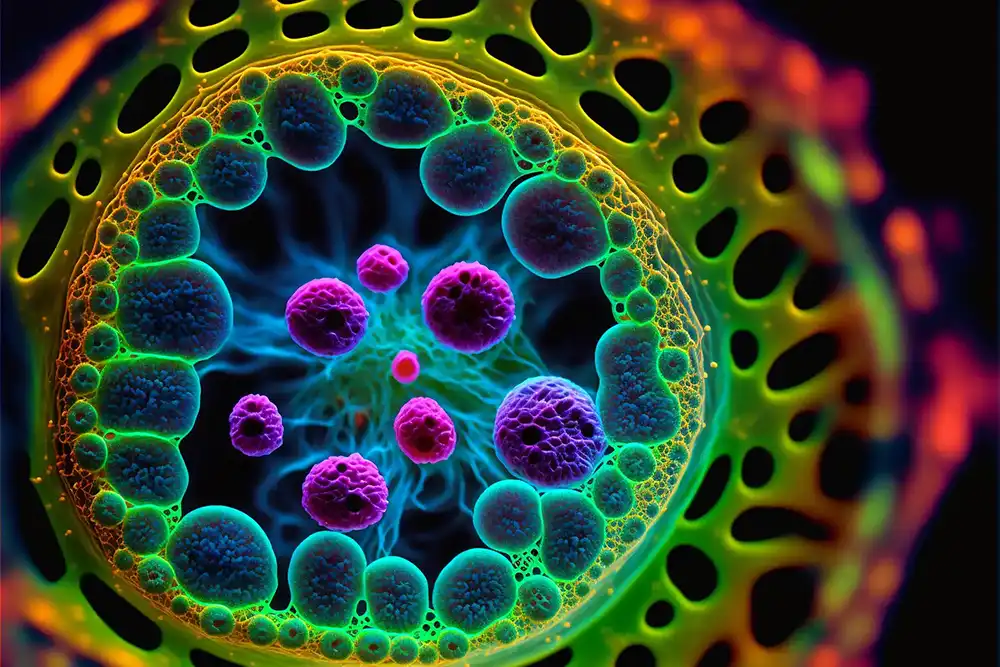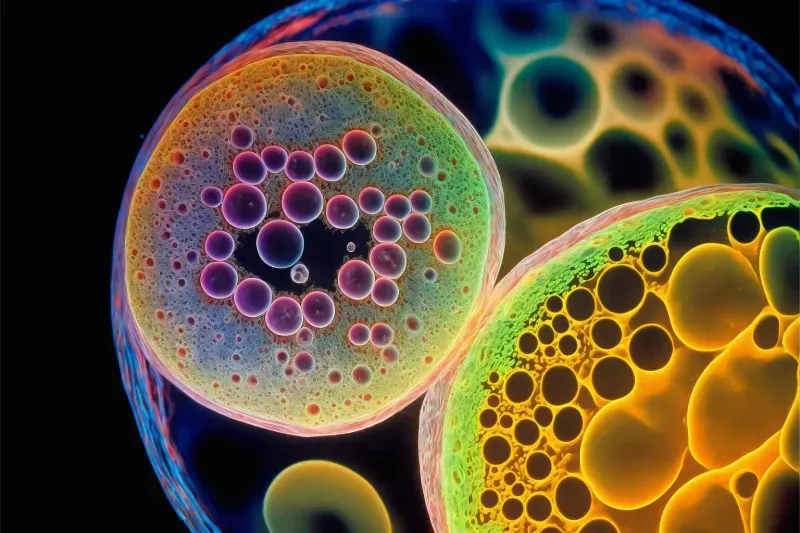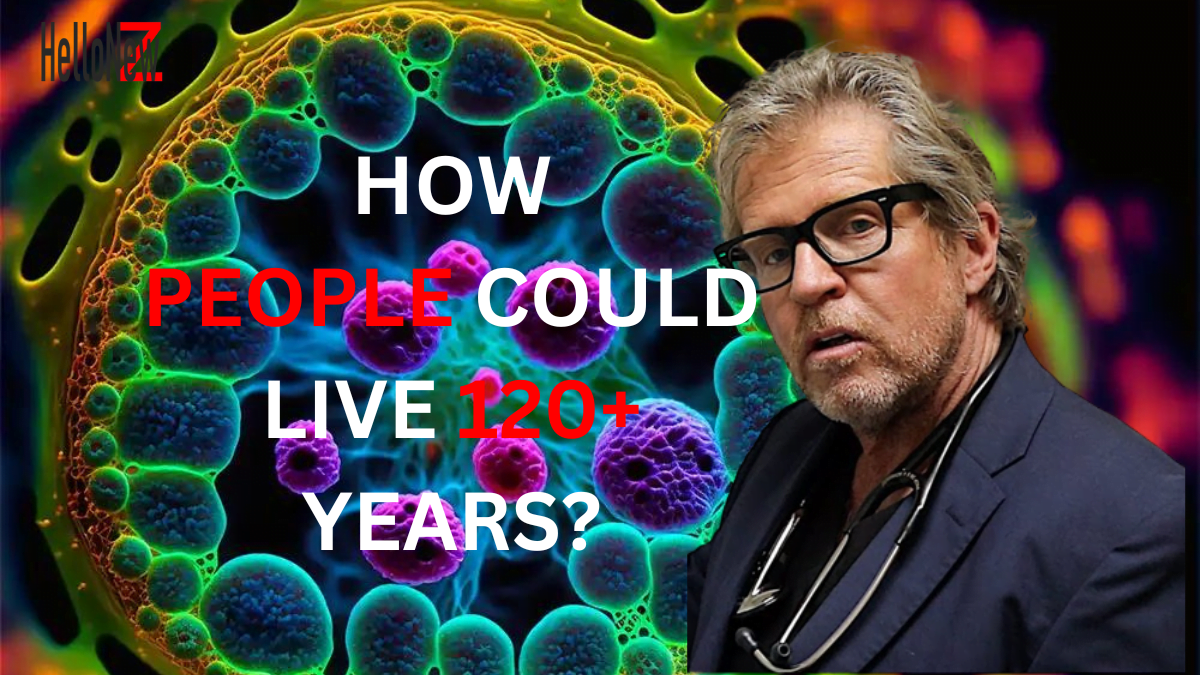Over 100 years ago, many people got sick and didn’t live very long because of diseases. But scientists found ways to stop these diseases with vaccines and treatments. Now, many people live much longer!
A smart doctor named Dr. Ernst von Schwarz thinks that very soon, Stem cells help us to live 120 years or even 150 years! How? It’s all thanks to something called stem cells. Dr. Ernst works at big hospitals and has written books about how stem cells can help us live longer and healthier lives.
Stem cells have long been the subject of scientific curiosity and research. With the potential to revolutionize the field of medicine and our understanding of life, it’s no wonder that many are excited about the promises they hold. One such promise is the potential to help us live longer, healthier lives. In this article, we will explore how stem cells can play a pivotal role in anti-aging.
What are stem cells?
Stem cells are unique cells in our body that have the capability to turn into many different types of cells. Think of them as blank slates, waiting to be given a specific function.
Where do stem cells come from?
There are various sources:
- Embryonic stem cells: Derived from embryos.
- Adult stem cells: Found in adult tissues like bone marrow.
- Induced pluripotent stem cells: Regular cells that have been reprogrammed to function like embryonic stem cells.

How can Stem cells help us to live long?
Stem cells have the ability to replace damaged cells and tissues, which can combat the natural process of aging. By replenishing our body’s cells, they can potentially keep our organs and tissues functioning optimally.
Can stem cells reverse aging?
While stem cells can promote healthier aging by repairing and regenerating tissues, the concept of “reversing” aging is still a topic of research. However, studies suggest they can slow down some aspects of the aging process.
What is the link between stem cells and telomeres?
Telomeres are the protective ends of chromosomes. As we age, telomeres shorten, which is linked to aging and disease. Some research indicates that stem cells can extend the length of telomeres, possibly delaying aging effects.
How safe is stem cell therapy for anti-aging?
While there are numerous successful stories, it’s essential to approach stem cell therapy with caution. It’s vital to consult professionals and ensure the therapy has been approved by health authorities.
Are there any side effects of stem cell treatments?
As with any medical procedure, there can be side effects. These might include infection, reactions to the treatment, or unexpected immune reactions. Always discuss potential risks with a healthcare provider.
How do stem cells know where to go in the body?
Stem cells are often attracted to areas of injury or damage due to certain chemical signals. This is how they can target and help repair specific areas.
Can I use stem cells from another person?
Yes, but it’s complex. Using stem cells from another person (allogeneic transplantation) can lead to immune reactions. Often, it’s more effective and safer to use one’s own stem cells (autologous transplantation).
How are stem cells administered for anti-aging?
Methods include direct injections into a particular area, intravenous infusions, or even topical applications for skin rejuvenation.
What diseases can stem cells currently treat?
Besides potential anti-aging benefits, stem cells are used to treat leukemia, spinal cord injuries, burns, heart diseases, and more.
Are stem cell treatments expensive?
The cost can vary widely based on the treatment type, location, and clinic. It’s always best to do thorough research and consultation before committing.
Are stem cell therapies approved worldwide?
The approval varies by country and treatment. Always check with local health authorities or professionals before pursuing a treatment.
Can stem cells help with brain health?
Stem cells have the potential to treat various neurological conditions, possibly playing a role in maintaining brain health as we age.
Is stem cell research ethical?
This is a debated topic, especially concerning embryonic stem cells. Different cultures, countries, and individuals have varying beliefs and regulations about this issue.
How long does it take to see results from stem cell therapies?
Results can vary based on the treatment type and individual. Some patients report immediate effects, while others may take weeks or months.
Are there any age restrictions for stem cell therapies?
Most therapies don’t have age restrictions, but one’s health status can influence eligibility.
Can stem cells treat age-related diseases like Alzheimer’s?
Research is ongoing, but there are promising indications that stem cells might play a role in treating or alleviating symptoms of age-related diseases.
How often would one need stem cell treatments for anti-aging?
It’s variable, depending on the individual’s needs, the specific treatment, and its lasting effects.
What’s the future of stem cell research in anti-aging?
The future looks promising! As research progresses, we can expect more refined treatments, better understanding, and even more applications in promoting healthier aging.

Table of Contents
Recent Discoveries in Stem Cell Research
In the last month, scientists have made some incredible breakthroughs in the world of stem cell research!
Understanding Early Human Development:
Scientists from Chiba University and other research groups have made cells that look and act like the very first cells in a growing baby. This can help us understand how babies grow before they are born. These cells are called “8-cell-like cells” (or 8CLCs for short).
Why Some Babies Have a Unique Skull Shape:
Researchers from Weill Cornell Medicine found out why some babies have skulls that close up too soon. This condition is called Craniosynostosis. They discovered a new kind of bone-making stem cell that’s the culprit.
A Possible New Treatment for PCOS:
The University of Chicago Medical Center found a new treatment for a condition in women called PCOS. They took parts from stem cells and used them to help mice with PCOS get better. This could be a big step for women’s health!
Stem Cells and Our Gut:
Tohoku University learned something cool about our intestines! When given the right nutrients, the cells in the intestine can turn back into simpler cells, almost like “baby” cells. This is called “dedifferentiation.” They found this out by studying fruit flies.
These studies show that stem cells can teach us a lot about our bodies and maybe help treat diseases in the future! Stem cells present an exciting frontier in the realm of medicine and anti-aging. By understanding their potential and staying updated with research, we could be on the cusp of unlocking longer, healthier lives for many. Always remember to consult with professionals when considering stem cell treatments and stay informed about the latest advancements.
Also Read: Yoga for Heart: A Guard Against Heart Failure, 5 Yoga poses for Heart

